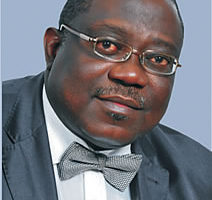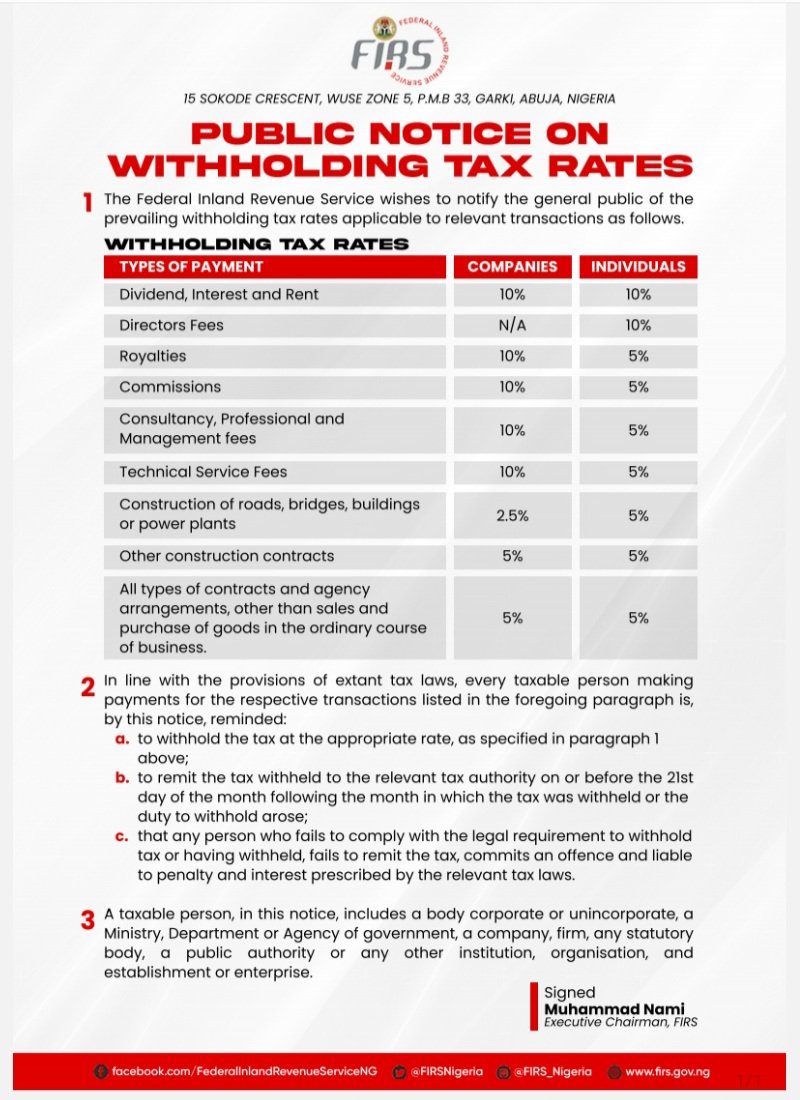
A quest for federalism in Nigeria cannot end even when we eventually succeed in achieving a viable federal structure. This is because the idea of federalism itself is a constantly evolving one that must be continually worked at and iterated to face any emerging challenges to national integration and unity. Stability is an unruly political animal that is subject to severe pressure, and requires eternal vigilance.
Let me commence by deeply appreciating Ambassador Sunday Thomas Dongoyaro, the brain behind the African Policy Research Institute (APRI). Initiatives like this complement the genuine efforts of all right thinking Nigerians to contribute to the nation building effort without which Nigeria can never hope to stand on its feet as a great nation. I am truly excited about APRI because its vision and mission intersects those of the Ibadan School of Government and Public Policy (ISGPP). The ISGPP is on its part is motivated by the mandate to make the Nigeria government work better than it is currently doing in terms of democracy and development through consistent policy dialogues and executive education.
It is therefore highly commendable that APRI would facilitate the publication of a seminal text on Nigerian federalism as part of its vision. And being asked to do a review of this significant issue in Nigeria’s national development is a huge honour. But my accepting that honour comes with its own limitation. If I had seen the text before being asked to review it, I would have rejected the task outright. This is because the timing of less than ten days was just not sufficient to do justice to the intellectual efforts of the eminent contributors. But my abiding interest in federalism as a critical plank in overall governance reform and my deep respect for Ambassador Dongoyaro and the outstanding federalism scholars/contributors and some others who facilitated the production of this volume overrode every other reservation I had. I am not a federalism scholar, but the federal issue has been on the agenda of political science in Nigeria since the founding of Nigeria. My student days in Political Science had its own fair share of debates and discourses on Nigeria’s lopsided federal system.
An equally fair share of my public commentaries and public education articles have engaged with Nigeria’s federal dynamics, especially with regards to the urgency of reform as an institutional imperative for making the Nigerian national project a viable one in the final analysis. I have championed the reform of the Nigerian civil service system for over twenty years, and it is not difficult to see how the inadequate federal system intersects with the lackluster performance of the public service as one of the democratic necessities Nigeria has to contend with. Let us take just one historical example. When the legislature was working out the intricacies of the Nigerianisation Policy in the immediate post-Independence period, it was confronted with the dilemma between representativeness (as a nod to Nigeria’s plural status) and meritocracy (as a nod to the professional status of the civil service structure). The principle of representativeness eventually won the day, and as a consequence, the civil service system went into a professional decline. I am genuinely convinced, as a critical participant in the civil service institutional trajectory for a while, that the public service has a role to play not only in the renewal of Nigeria’s federal status, but in the eventual success of Nigeria’s development profile and democratic success.
It is in this regard that I consider Nigerian Federalism: Continuing Quest for Stability and Nation-Building not just an impressive seminal volume, but an invaluable reference text that no serious federalism scholar can afford to ignore. In this connection, I must first commend Professors Okechukwu Ibeanu and Mohammed Kuna for assembling such an eminent team of federalism scholars to again interrogate an issue that can never disappear from the list of urgent concepts and ideas that Nigeria requires to engage with to become a significant national entity unto itself and unto other nations. It is not easy putting together another federalism volume, as the editors rightly observed. There are already countless other volumes which critically examine federalism and the federal idea from several seminal angles. Which raises the Question: What does this new one add to the list and our collective yearnings to make Nigeria work?
The first justification for this volume, as I see it, comes from the imperative embedded in the title. As long as Nigeria remains locked within a lopsided and unviable ‘federal” system, there is no volume that can be too many in the collective attempt at understanding and rethinking federalism in Nigeria. Federalism is a critical ingredient in making sense of Nigeria’s plural existence. Like the United States of America, India, Russia, United Kingdom, etc., Nigeria is circumscribed by linguistic, religious, cultural and ethnic differences that constitute centrifugal forces undermining all attempts at achieving a civic nationalism that brings together the endorsement of all the constituent parts of the Nigerian states. The true test of federalism resides in its capacity to put together a structural framework which could ensure that all these constituents have sufficient reasons to stay together in a Nigerian national entity that allows its citizens to realize their aspirations as individuals and as Nigerians.
Thus, understanding federalism becomes a significant quest for achieving stability and making sense of the nation building effort in Nigeria. A quest for federalism in Nigeria cannot end even when we eventually succeed in achieving a viable federal structure. This is because the idea of federalism itself is a constantly evolving one that must be continually worked at and iterated to face any emerging challenges to national integration and unity. Stability is an unruly political animal that is subject to severe pressure, and requires eternal vigilance. The experience of Syria, Egypt, Tunisia and other conflicted national spaces warn us that stability is a critical issue. Without it, development is already compromised. And stability within an emerging democratic context like Nigeria is even doubly problematic without a viable federal structure that has sufficient shock absorbers to take the knocks and strains of centrifugal forces.
Apart from its historical perspectives—in chapters two, seven, eight, nine, and ten—the eleven-chapter volume also critically outline some significant dimensions to the federalism debate in Nigeria, especially with regard to intergovernmental relations (chapter three), federal-state relations (chapter four) and fiscal federalism (chapter five). Prof. Jinadu’s chapter on the federal idea in Nigeria sets the pace for a thorough historical excavation of federalism from pre-colonial times till 1946. This chapter gives us a significant insight into what the editors of the volume calls the “pre-federal phase” of the federal idea in Nigeria. Jinadu’s chapter not only provides useful analysis of the significance of the 1946 Richards Constitution and its instigation of federalism, it provides interesting arguments for tracing the federal idea back in time to pre-colonial Nigerian societies. In chapters three, four and five, we have a coincidence of issues that capture how federalism relates to intergovernmental relations, federal-state relations and government performance in Nigeria. The real question in these three chapters concerns how federalism can be made more empowering especially in the relationship between the three tiers of government for the sake of the citizens. This is critical because the federal system in Nigeria is a centralised one where 83 legislative items are under federal control! And this is all the more worrisome because centralisation has a lot of implication for revenue allocation and government performance especially at the local government level where decentralisation would have benefitted Nigerians the more.
My reform intuition, for instance, has a lot to agree with in Prof. Adetula’s chapter on “Fiscal Federalism and Government Performance in Nigeria.” He began the chapter by connecting with a deep assumption: “An underlying assumption of fiscal federalism is that it should create incentives for both the central and constituent governments to efficiently and effectively deliver services to their citizens” (p. 111). This assumption has been the premise on which my agitation for administrative reform has been based.
Between chapters six and seven, we have the duo of Bande and Ogbonnaya (on federalism and party politics) and Aiyede (on the relationship between federalism and critical elections in Nigeria since 1946) providing sustained and critical connection between the formation of party politics in Nigeria, the influence of Nigeria’s plural character on the type of parties formed, the inimical effects of ethnicities on the internal functioning of the parties, and the deleterious consequences these parties have on electoral matters. Stability has been a major issue in Nigeria since independence, and elections have also been a major point of conflict. Nigeria’s lopsided federal idea and its centralizing logic has also ensured that parties now constitute the focal point for winning a seat at the feast where the national cake is shared to the detriment of Nigerians. This is one good reason why almost every critical election in Nigeria is a source for worry on stability.
Edoba Omoregie’s chapter on “Federalism Jurisprudence of the Supreme Court of Nigeria” is significant for what the editors refer to as one component of the federal idea, namely, to federate. This component concerns the legal complexities involved in the relationship between the federal government and the federative units. Federalism is rooted essentially in the constitutional provisions that make the federating relations legal and binding on the parts involved. One way to understand how these legal constitutional provisions have evolved over time is to examine the judicial review of federalism in Nigeria through the federalism jurisprudence of the Supreme Court over time. This is the significance of Prof. Omoregie’s contribution in chapter eight. The same can be said for Prof. Jideofor Adipe’s contribution in chapter nine. “Federalism and the Broadcast Media, 1914-2015” is an impressive historical interrogation of the relationship between the media and the federal idea. The important question in this chapter is: What role did the broadcast media play in mediating the centripetal and centrifugal influences on national unity in Nigeria. This question is important because the media is regarded as the fourth estate of the realm and its influence on stability or the lack of it cannot be underestimated. The slant that a radio or television gives to any political news can be the ultimate difference between war and peace. We have the solid example of the role played by Radio Kudirat in the fight for democratic consolidation in Nigeria, and Radio Biafra in the interrogation of the idea of national unity. In chapter ten, Prof. Osita Agbu examines the relationship between federalism and Nigeria’s foreign relations policy since independence. This chapter is enlightening because the relationship it meant to shed light on is not always so obvious even to scholars of federalism. The significant link which the chapter elaborates is the extent to which the achievement of national unity—which is the core of the federal idea—affects a state’s foreign policy which is equally founded on the state’s coherent understanding of itself as a state relating with other coherent states.
Thus, I totally agree with the editors that Nigerian Federalism, and all its constitutive chapters, is justified because it promises “a conceptual re-evaluation of Nigerian federalism.” According to the editors,
Prevailing conceptions of federalism in Nigeria essentially consider it from a structural-institutional perspective namely, a system of sharing governmental powers between a Centre and “federating” units, conferring on each level of government an autonomy n competence, underscored by adequate resourcing and fiscal independence. This is necessary, principally, to foster national unity and cognately, to ensure even development (p. 3).
The editors, on the contrary, think that this structural-institutional perspective is “ahistorical and static” because it fails to properly situate federalism within its on contextual trajectory of evolution. To facilitate such an understanding of Nigerian federalism therefore, the editors introduces certain conceptual distinctions, namely, between “to federate” and “to be federal”; on the one hand, and “homogeneity-centralisation” and “diversity-decentralisation” on the other hand. These are useful distinction, I agree. Conceptual distinctions enable a firm grip on disparate realities, and they allow for neater historical mapping, especially of Nigeria’s national circumstances.
But I have a nagging worry all the same. While there is no doubt that history matters, especially the history of the evolution of the Nigerian state and its plural complexities, we should also not forget that historical anomalies can only be undermined through a serious attention to a policy agitation that facilitates a significant policy architecture over what has been called the “major issues” of Nigerian federalism. Nigerian Federalism is very strong on historical diagnosis and analysis. But I see a policy gap. Apart from all the questions raised by the editors as being at the heart of the chapters in the volume, one critical one which I think would have deepen the value of Nigerian Federalism for our current agitations over Nigeria’s federal status is the question of what specific policy directions could be deduced from the historical understanding of the distinction between to federate and to be federal, and between homogeneity-centralisation and diversity-decentralisation. In other words, how can these theoretical distinctions enable us to come to grip with thorny issues of resource control, fiscal federalism, intergovernmental relations, marginalization, government performance, federal-state relations, and all the other “major issues” of federalism in Nigeria? How, for instance, can the discourse about Nigerian federalism be moved away from within the context of the national question to that of the social question? Federalism, by it very definition, focuses on the national configuration of the Nigerian state as well as the relationship between the state and its constituent parts. The social question raises the issue of how the state can empower its citizens through adequate and democratic service delivery. This is why I find Prof. Adetula’s chapter on fiscal federalism and government performance quite interesting as a significant chapter in any book that addresses the confluence of federalism and the social question in Nigeria.
To be fair, it is not the case that the entire volume is devoid of policy articulations. For instance, Prof. Galadima’s chapter on intergovernmental relations recommended the establishment of a national agency for intergovernmental relations, the constitutional distribution of powers on the basis of subsidiarity, and a reinvigorated public service. And in the chapter on federalism and foreign relations, Prof. Agbu argues for a policy that would enable decentralisation by empowering states to contribute to issues of foreign policy. What is however clear, and which bears out the initial worry, is that the attention to policy implications of federal practices in Nigerian Federalism is only incidental. It is not central to the conception of the volume itself. While this may not be a critique of the significance of the work, it seems to me that it would have taken the issue of federalism to a level that would confront policy makers with serious framework for confronting the deep issues involved in making Nigeria work better than it is presently doing.
Thus, in terms of analytic rigour and breath of historical perspicacity, the editors of Nigerian Federalism must be commended for putting together a volume that traverse significant issues in Nigerian federalism. This is a book that will provide both the students and the scholars of Nigerian political history and/or Nigerian federalism with a one-stop volume of rigorous essays that outline the historical trajectory of Nigerian federalism with significant conceptual innovation to stimulate the agenda of rethinking and rehabilitating federalism as a historical political practice in Nigeria. But as someone who has been in occupying the interstice of theory and practice for so many years, I know for certain that Nigeria’s redemption must be find in that intricate atmosphere where theory infuses rigorous policy advocacy to bring about incremental institutional transformation of the type that will make Nigeria s state that all can believe in, beyond just cosmetic institutional realignment.
In the final analysis, I agree with the editors that “the major challenges of Nigerian federalism are not about to go away. However, a better understanding of their dynamics is required to manage them more effectively.” This is a significant book that can serve as a basis for jumpstarting such further discussion on the complex evolution of federalism in Nigeria.
Dr. Tunji Olaopa is the Executive Vice-Chairman of Ibadan School of Government and Public Policy (ISGPP) and he delivered this paper at the public presentation event organised by the African Policy Research Institute (APRI) on Monday 12th of December, 2016 at NAF Conference Centre & Suite, Kado, Abuja. [myad]








